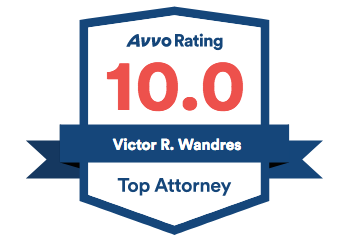Ask an Tulsa Oklahoma FDCPA Lawyer: What practices are illegal for debt collectors?
Dear FDCPA Lawyer: What practices are off limits for debt collectors?
[divider_line]
The Fair Debt Collection Practices Act is a complex law. Our law firm is happy to answer any questions you have about the law and analyze if you may be entitled to a check for $1,000 as a result of being unlawfully contacted by your debt collectors. There is no need for you to become an expert in the law–we already are and we’re happy to help you for free! Just call or send us an e-mail by using the form on the right. If we take your case, you’ll never have to pay us! In fact, we’ll make the debt collectors pay you! In general, the FDCPA prohibits the following:
Harassment. Debt collectors may not harass, oppress, or abuse you or any third parties they contact. For example, they may not:
- contact your family about your debt (except your spouse);
- use threats of violence or harm;
- publish a list of names of people who refuse to pay their debts (but they can give this information to the credit reporting companies);
- use obscene or profane language; or
repeatedly use the phone to annoy someone.
False statements. Debt collectors may not lie when they are trying to collect a debt. For example, they may not:
- falsely tell you how the debt will affect your credit report or credit score;
- falsely claim that they are attorneys or government representatives;
- falsely claim that you have committed a crime;
- falsely represent that they operate or work for a credit reporting company;
- misrepresent the amount you owe (including adding phony fees and interest you didn’t agree to in the original agreement);
- indicate that papers they send you are legal forms if they aren’t; or
indicate that papers they send to you aren’t legal forms if they are.
Debt collectors also are prohibited from saying that:
- you will be arrested if you don’t pay your debt;
- they’ll seize, garnish, attach, or sell your property or wages unless they are permitted by law to take the action and intend to do so; or
- legal action will be taken against you, if doing so would be illegal or if they don’t intend to take the action.
Debt collectors may not:
- give false credit information about you to anyone, including a credit reporting company;
- send you anything that looks like an official document from a court or government agency if it isn’t; or
use a false company name.
Unfair practices. Debt collectors may not engage in unfair practices when they try to collect a debt. For example, they may not:
- try to collect any interest, fee, or other charge on top of the amount you owe unless the contract that created your debt – or your state law – allows the charge;
- deposit a post-dated check early;
- take or threaten to take your property unless it can be done legally; or
- contact you by postcard.


